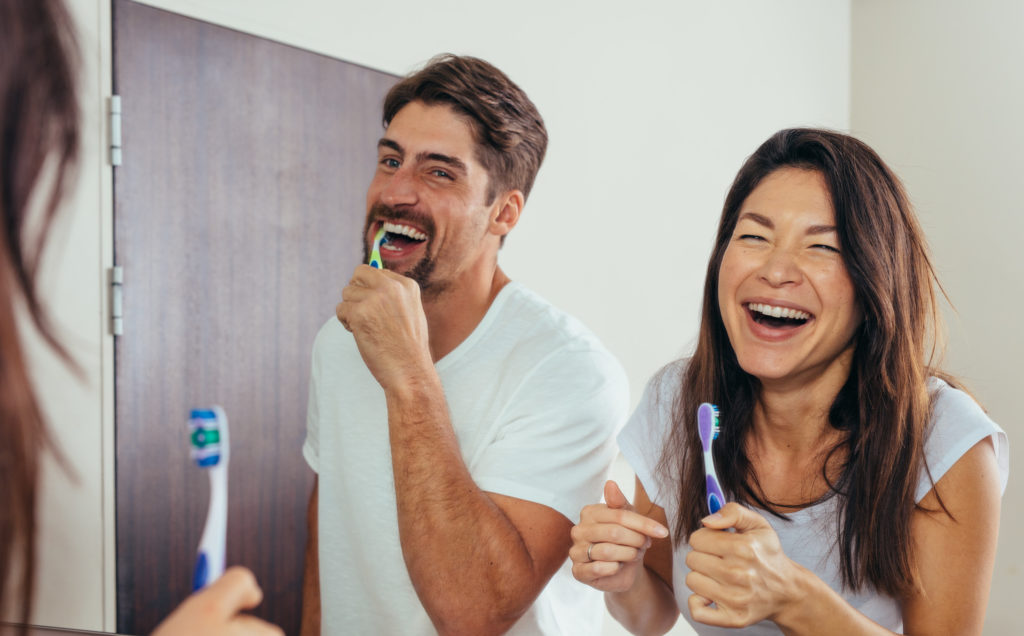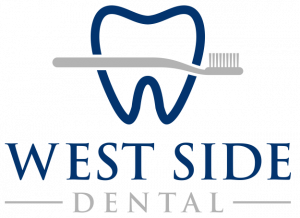Cleanings
Regular cleanings at the dentist’s office are essential. But do you know why? Simply stated, brushing and flossing at home cannot remove the plaque (soft, white sticky film of bacteria) and calculus (hardened plaque) build-up from your teeth and gums.

Table of Contents
What is a Dental Cleaning?
Simply stated, brushing and flossing at home cannot remove the plaque (soft, white sticky film of bacteria) and calculus (hardened plaque) build-up from your teeth and gums. Removing this bacteria prevents cavities and gum diseases like gingivitis and periodontitis. Dentists generally recommend a cleaning at least every six months. But more frequent cleanings are often beneficial. Our caring hygienists will help you determine the cleaning schedule you need to keep your smile beautiful for a lifetime.
Personalized care is our specialty.
Our hygiene team will advise you on what is a good frequency for your professional cleanings based on your oral health, your home care habits, and any medical conditions you may have. The recommendation may change throughout your lifetime as you change.
Our hygiene team will often recommend patients with more risk factors for gingivitis and periodontal disease come in for cleanings every three months. By coming more frequently, we can help prevent minor dental health problems before they become big ones.
Who Requires More Frequent Dental Cleanings?
High-risk patients who may require more frequent cleanings are:
- people who already have periodontal disease
- people with a weak immune system
- people with a high rate of caries
- smokers
- people with diabetes
- pregnant women
- patients with a physical or mental impairment that inhibits their ability for quality home care of their teeth
- patients undergoing chemo and/or radiation therapy due to the high risk for aggressive decay to happen during treatment
- patients in active orthodontic treatment
Dental Cleanings FAQs
Keeping your mouth healthy requires routine dental cleanings. Hard-to-reach regions can still collect plaque and tartar even with vigorous home brushing and flossing. If left untreated, this buildup can lead to gum disease, cavities, and other oral health issues. Professional cleanings remove plaque and tartar, preventing these problems and helping to keep your teeth and gums healthy. Also, cleanings can help freshen your breath and create a brighter smile.
The duration of a dental cleaning can vary depending on factors such as the individual’s oral health condition, tartar or plaque buildup, and the thoroughness of the cleaning required. Typically, a routine dental cleaning lasts between 30 minutes to an hour. However, the appointment may take longer if a significant buildup or additional procedures like scaling or deep cleaning are necessary. Dentists and dental hygienists strive to ensure thorough cleaning while being mindful of the patient’s comfort and oral health needs.
Preparing for dental cleaning is simple and can help ensure a smooth appointment. Begin by brushing and flossing your teeth thoroughly before your visit to remove any surface debris. Note any changes or concerns with your oral health to discuss with your dental hygienist. Arrive on time or a few minutes early to complete any necessary paperwork. If you have dental insurance, bring your insurance information along. Finally, try to relax and feel comfortable during your appointment.
